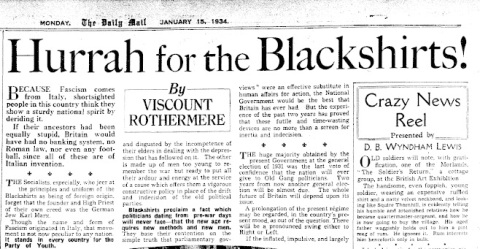At the Conservative Party conference in 2002, new party chairwoman Theresa May stunned delegates with her keynote speech by saying the following:
Yes, we’ve made progress, but let’s not kid ourselves. There’s a way to go before we can return to government. There’s a lot we need to do in this party of ours. Our base is too narrow and so, occasionally, are our sympathies, You know what some people call us: the nasty party.
Since 2010 the Conservatives have proved in government that they haven’t changed and they’re still the Nasty Party writ large with their austerity policies that have cut funding to local authorities, cutting benefits for the disabled and referring to the unemployed as scroungers and shirkers.
Theresa May has since moved on from Conservative Party chairwoman via the Home Office to doing Prime Minister impressions at a lectern outside 10 Downing Street and at the despatch box in the House of Commons. Although her 2002 admonishment might have been the first time that a prominent Tory had criticised the party, the Tories’ political opponents have been doing so along the same lines for decades.
 One of the most prominent of these criticisms in the post-war period came on 4th July 1948 when Aneurin Bevan, then the Labour government’s Minister of Health, addressed a Labour Party rally in Manchester on the anniversary of Labour’s accession to power.
One of the most prominent of these criticisms in the post-war period came on 4th July 1948 when Aneurin Bevan, then the Labour government’s Minister of Health, addressed a Labour Party rally in Manchester on the anniversary of Labour’s accession to power.
Bevan’s speech was largely a review, followed by a pledge that the Government could carry out its entire programme, including nationalisation of the steel industry, a pledge in the party’s 1945 election manifesto.
However, Bevan recalled what he described as the bitter experiences of his early life. For a time he was forced to live on the earnings of an elder sister and was told to emigrate.
On this point, he remarked:
That is why no amount of cajolery, and no attempts at ethical or social seduction, can eradicate from my heart a deep burning hatred for the Tory Party that inflicted those bitter experiences on me. So far as I am concerned they are lower than vermin. They condemned millions of first-class people to semi-starvation.
Yes, that’s right. In Bevan’s eyes, the Conservatives were “lower than vermin“.
Oxford Dictionaries defines vermin as follows:
Wild animals which are believed to be harmful to crops, farm animals, or game, or which carry disease, e.g. rodents.
It also offers the additional sub-definition below:
People perceived as despicable and as causing problems for the rest of society.
As regards its origin, the word vermin first appears in Middle English and comes from from Old French based on Latin vermis ‘worm’ since it originally denoted animals such as reptiles and snakes.
However, this demotion of the Tories to rank below rats, mice and the like wasn’t the only attack on the Conservatives during Bevan’s speech, since he is also reported as asking the meeting rhetorically at one point: “For what is Toryism, except organised spivvery?“. This reference to wartime black marketeers may sound anachronistic, but there are still senior members of the Conservative Party who are even nowadays referred to as spivs (posts passim) – and by others apart from your ‘umble scribe.
Finally, in view of the impending general election, it might be worth recalling what Bevan went on the say about the Conservatives of his time, since these words still have relevance and pertinence today.
Now the Tories are pouring out money in propaganda of all sorts and are hoping by this organised sustained mass suggestion to eradicate from our minds all memory of what we went through. But, I warn you young men and women, do not listen to what they are saying now. Do not listen to the seductions of Lord Woolton. He is a very good salesman. If you are selling shoddy stuff you have to be a good salesman. But I warn you they have not changed, or if they have they are slightly worse than they were.
Ouch! All that needs changing to make the above quotation contemporary to the 2017 election would be to replace the name of Woolton with that of a present-day prominent right-wing Tory grandee. Will any opposition candidate do so?

 One of the most prominent of these criticisms in the post-war period came on 4th July 1948 when
One of the most prominent of these criticisms in the post-war period came on 4th July 1948 when  Debian is a mature Linux distribution that serves as the basis for many other distros, such as the
Debian is a mature Linux distribution that serves as the basis for many other distros, such as the 







